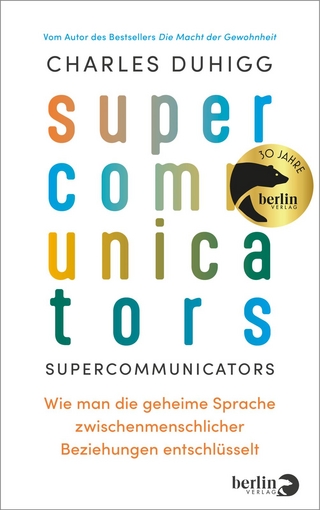
The Rhetoric of Mao Zedong
Transforming China and Its People
Seiten
2017
University of South Carolina Press (Verlag)
978-1-61117-752-7 (ISBN)
University of South Carolina Press (Verlag)
978-1-61117-752-7 (ISBN)
Analyses Mao Zedong's speeches and writings over a span of sixty years, tracing the sources and evolution of Mao's discourse, analysing his skills as a rhetor and mythmaker, and assessing his symbolic power and continuing presence in contemporary China. Lu observes that Mao's rhetorical legacy has been commoditized, culturally consumed, and politically appropriated since his death.
Mao Zedong fundamentally transformed China from a Confucian society characterized by hierarchy and harmony into a socialist state guided by communist ideologies of class struggle and radicalization. It was a transformation made possible largely by Mao’s rhetorical ability to attract, persuade, and mobilize millions of Chinese people. Xing Lu’s book, Rhetoric of Mao Zedong, analyzes Mao’s speeches and writings over a span of sixty years, tracing the sources and evolution of Mao’s discourse, analyzing his skills as a rhetor and mythmaker, and assessing his symbolic power and continuing presence in contemporary China. Lu observes that Mao’s rhetorical legacy has been commoditized, culturally consumed, and politically appropriated since his death.
Applying both Western rhetorical theories and Chinese rhetorical concepts to reach a more nuanced and sophisticated understanding of his rhetorical legacy, Lu shows how Mao employed a host of rhetorical appeals and strategies drawn from Chinese tradition and how he interpreted the discourse of Marxism-Leninism to serve foundational themes of his message. She traces the historical contexts in which these themes, his philosophical orientations, and his political views were formed and how they transformed China and Chinese people.
Lu also examines how certain ideas are promoted, modified, and appropriated in Mao’s rhetoric. Mao’s appropriation of Marxist theory of class struggle, his campaigns of transforming common people into new communist advocates, his promotion of Chinese nationalism, and his stand on China’s foreign policy all contributed to and were responsible for reshaping Chinese thought patterns, culture, and communication behaviors.
Mao Zedong fundamentally transformed China from a Confucian society characterized by hierarchy and harmony into a socialist state guided by communist ideologies of class struggle and radicalization. It was a transformation made possible largely by Mao’s rhetorical ability to attract, persuade, and mobilize millions of Chinese people. Xing Lu’s book, Rhetoric of Mao Zedong, analyzes Mao’s speeches and writings over a span of sixty years, tracing the sources and evolution of Mao’s discourse, analyzing his skills as a rhetor and mythmaker, and assessing his symbolic power and continuing presence in contemporary China. Lu observes that Mao’s rhetorical legacy has been commoditized, culturally consumed, and politically appropriated since his death.
Applying both Western rhetorical theories and Chinese rhetorical concepts to reach a more nuanced and sophisticated understanding of his rhetorical legacy, Lu shows how Mao employed a host of rhetorical appeals and strategies drawn from Chinese tradition and how he interpreted the discourse of Marxism-Leninism to serve foundational themes of his message. She traces the historical contexts in which these themes, his philosophical orientations, and his political views were formed and how they transformed China and Chinese people.
Lu also examines how certain ideas are promoted, modified, and appropriated in Mao’s rhetoric. Mao’s appropriation of Marxist theory of class struggle, his campaigns of transforming common people into new communist advocates, his promotion of Chinese nationalism, and his stand on China’s foreign policy all contributed to and were responsible for reshaping Chinese thought patterns, culture, and communication behaviors.
Xing Lu is a professor of communication at DePaul University in Chicago, Illinois. Born and raised in China, she received her doctorate in rhetoric and communication from the University of Oregon. Lu is the author or editor of five books, including Rhetoric in Ancient China, Fifth to Third Century B.C.E., winner of the James A. Winans–Herbert A. Wichelns Memorial Award for Distinguished Scholarship in Rhetoric and Public Address, and Rhetoric of the Chinese Cultural Revolution, both published by the University of South Carolina Press.
| Erscheinungsdatum | 01.06.2017 |
|---|---|
| Reihe/Serie | Studies in Rhetoric/Communication |
| Verlagsort | South Carolina |
| Sprache | englisch |
| Maße | 152 x 229 mm |
| Themenwelt | Sachbuch/Ratgeber ► Beruf / Finanzen / Recht / Wirtschaft ► Briefe / Präsentation / Rhetorik |
| Geisteswissenschaften ► Sprach- / Literaturwissenschaft ► Sprachwissenschaft | |
| Sozialwissenschaften ► Politik / Verwaltung ► Politische Theorie | |
| ISBN-10 | 1-61117-752-9 / 1611177529 |
| ISBN-13 | 978-1-61117-752-7 / 9781611177527 |
| Zustand | Neuware |
| Haben Sie eine Frage zum Produkt? |
Mehr entdecken
aus dem Bereich
aus dem Bereich
der unverzichtbare LEGO® SERIOUS PLAY® Praxis-Guide für Workshops, …
Buch | Hardcover (2023)
Hanser (Verlag)
CHF 55,95
Wie man die geheime Sprache zwischenmenschlicher Beziehungen …
Buch | Hardcover (2024)
Berlin Verlag
CHF 36,40
die wichtigste Kompetenz unserer Zeit erfolgreich nutzen
Buch | Softcover (2023)
GABAL (Verlag)
CHF 45,95


